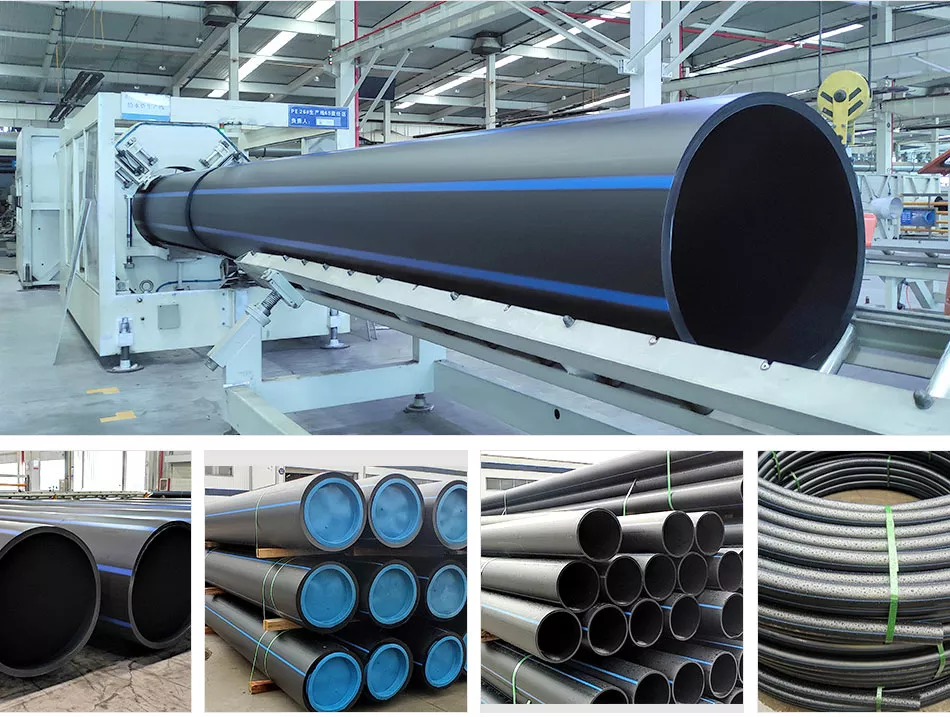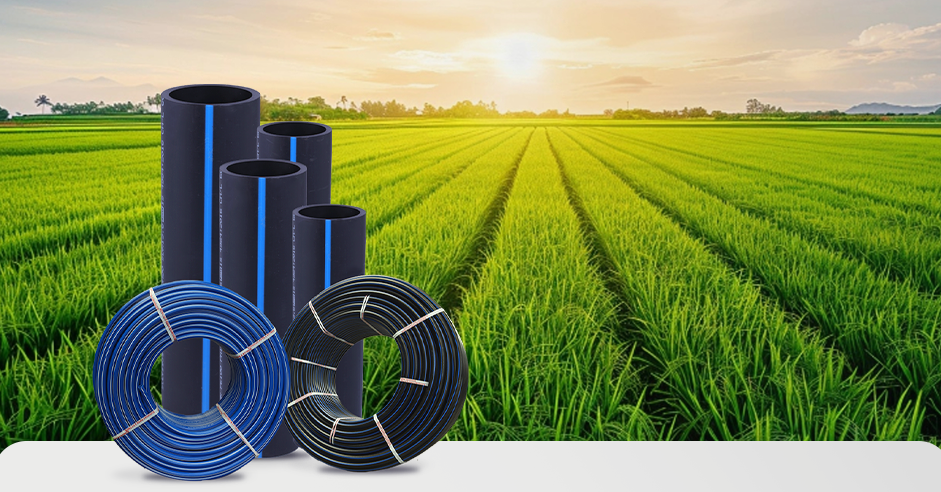Why Partnering with Pipe Supplier American Plastics Midland Ensures Trusted Solutions
Wiki Article
Understanding the Secret Perks of HDPE Pipeline for Water and Wastewater Management
Making use of HDPE pipeline in water and wastewater monitoring provides various advantages that warrant consideration. Its remarkable toughness and lengthy life-span make it a preferred selection for several jobs. Additionally, the material's resistance to deterioration and chemical damage improves its reliability in different environments. Nonetheless, the benefits extend beyond simply durability and resistance. Exploring its cost-effectiveness and environmental influence exposes a lot more engaging reasons for its prevalent fostering in modern infrastructureOutstanding Sturdiness and Longevity

HDPE pipeline attracts attention for its exceptional toughness and durability, making it a recommended choice in water monitoring systems. Created from high-density polyethylene, these pipes can endure substantial pressure and tension, ensuring trustworthy efficiency with time. Their durable nature allows them to withstand extreme environmental conditions, consisting of temperature changes and dirt motions, which can create other materials to fall short.
The life-span of HDPE pipes commonly exceeds 50 years, supplying a cost-effective remedy for towns and industries alike. Furthermore, the material's light-weight buildings streamline installation, minimizing labor prices and durations. This toughness decreases the requirement for regular repair services or substitutes, better improving its financial allure.
In water administration applications, the dependability of HDPE pipes means less interruptions and enhanced solution connection, making them important to lasting facilities advancement. The mix of longevity and long life solidifies HDPE's duty as a foundation in efficient water monitoring services.

Resistance to Deterioration and Chemical Damages
While several materials catch deterioration and chemical damage in time, HDPE pipes display exceptional resistance, making them optimal for different water administration applications. This strength comes from the molecular framework of high-density polyethylene, which is naturally non-reactive and does not wear away like steels or degrade from direct exposure to severe chemicals. As an outcome, HDPE is very efficient in settings with hostile substances, such as wastewater systems that might contain acids, bases, and organic solvents.
Furthermore, HDPE pipelines can withstand ecological aspects such as dirt acidity and saline conditions, additionally enhancing their suitability for varied applications (Pipe Supplier American Plastics Midland). Their capability to preserve architectural integrity in time reduces the risk of leaks and failings, which is vital in ensuring the safety and security and dependability of water circulation and wastewater monitoring systems. The resistance to corrosion and chemical damage considerably adds to the general performance and durability of HDPE piping options.
Cost-Effectiveness and Financial Benefits
When taking into consideration the financial effects of water monitoring systems, the cost-effectiveness of HDPE pipelines becomes apparent. These pipes supply reduced installation and upkeep expenses contrasted to standard materials like steel or concrete. Their lightweight nature streamlines transportation and installment, leading to reduced labor costs. In addition, HDPE pipes show a long life-span, usually surpassing 50 years, which converts to fewer substitutes and long-term financial savings.The resistance of HDPE to corrosion and chemical damages decreases the need for expensive repair services and substitutes. The pipes likewise sustain efficient water circulation, look at this site lowering energy expenses associated with pumping systems. By mitigating leaks and water loss, HDPE pipelines contribute to considerable financial advantages for districts and markets alike. In general, the first financial investment in HDPE piping can produce substantial financial returns over the life-span of the water management system, making it a sensible option for lasting infrastructure growth.
Ecological Sustainability and Decreased Impact

Versatility and Adaptability in Setup
Due to their unique residential properties, HDPE pipelines provide remarkable versatility and versatility in installation, making them ideal for a variety of applications. Their light-weight nature permits less complicated handling and transportation, lowering labor expenses and installment time. HDPE pipes can be bent and formed to fit various surfaces and project needs, which is particularly valuable in challenging settings.Additionally, their resistance to rust and chemical damages permits installment in varied setups without the need for specialized safety finishings. The capacity to fuse joints produces a constant, leak-free system, enhancing the general stability and dependability of the installation. HDPE's adaptability likewise accommodates ground movement, decreasing website link the threat of damage in areas susceptible to changing dirt. In general, these features make HDPE pipes not only functional yet also a favored option for water and wastewater administration systems.
Frequently Asked Concerns
Exactly How Does HDPE Pipeline Contrast to PVC in Water Administration Applications?
HDPE pipe provides superior flexibility, resistance to corrosion, and durability compared to PVC. Its lighter weight assists in much easier installment, while its long life expectancy lowers replacement prices, making HDPE a favored selection in water monitoring applications.What Is the Lifespan of HDPE Pipes Under Common Conditions?
Under common conditions, HDPE pipelines can have a life-span varying from 50 to 100 years. Their durability and resistance to corrosion add to their long-term performance in numerous applications, making them a trustworthy option for facilities.Are HDPE Pipeline Recyclable After Their Life Span?
Yes, HDPE pipelines are recyclable after their service life. Pipe Manufacturing Midland TX. They can be refined and repurposed into brand-new items, considerably decreasing ecological effect and advertising sustainability within the market, making them an environment-friendly selection for piping remediesWhat Is the Installment Process for HDPE Piping?
The installation process for HDPE pipelines involves website preparation, trenching, pipeline fusion or mechanical signing up with, backfilling, and stress testing. Proper techniques ensure a resilient and reliable system for delivering water and wastewater effectively.Can HDPE Piping Be Used for Both Drinkable and Non-Potable Water Systems?
Yes, HDPE useful source pipes can be made use of for both potable and non-potable water systems. Their convenience, longevity, and resistance to corrosion make them appropriate for numerous applications, ensuring secure and efficient transport of water in various contexts.Report this wiki page